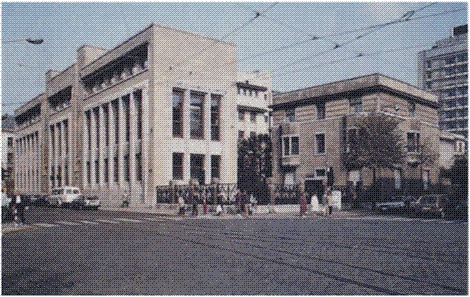Tropical Institute in Amsterdam. Another course leads to a Master's degree in ‘Tropical Biomedical Sciences’. This course is aimed at training persons such as epidemiologists, hospital administrators, research workers or medical school teaching staff. Practical training in research work, mainly concerning animal health, can lead to a Master's degree or even a Ph.D.
Research at the Institute has been concentrated on a number of priorities for the tropics. With its 240 staff - some thirty-five of whom are university-trained - the Institute is in no position to support the expensive fundamental research which is carried out at universities. However, it plays a vital role as a link between the populations in developing countries on one hand and the major research centres on the other. Its own research work is mainly aimed at solving the health problems of these populations, making use of the results of fundamental research.
A considerable effort has been made in recent years to concentrate research around a limited number of topics, in which different laboratories can collaborate. This has led to the formation of separate research departments: Parasitology, Veterinary Medicine, Community Health, Clinical Research and Infection and Immunity. The latter department, which concentrates on sexually transmitted diseases in the tropics, is also involved in aids research.
In fact, one of the very first cases of this disease to be observed outside the United States was seen by the Institute's medical doctors. Since the patient was an African, this led to an international enquiry, which led to the conclusion that the newly described disease was probably primarily of African origin. Research workers at this Institute, mostly affiliated with the Research Department for Infection and Immunity have since concentrated their attention on the means of transmission of the infection in the tropics, and on the particular aspects of the disease in Africa.
The Antwerp Institute, together with over thirty European institutes of tropical medicine, is a member of the
tropmedeurop association. This is an organisation in which Directors of Institutes meet on regular intervals. It is recognised as a non-governmental organisation with official links with the World Health

The Institute of Tropical Medicine in Antwerp.
Organisation, which enable it to advise the
who on matters of health in the tropics.
luc eyckmans